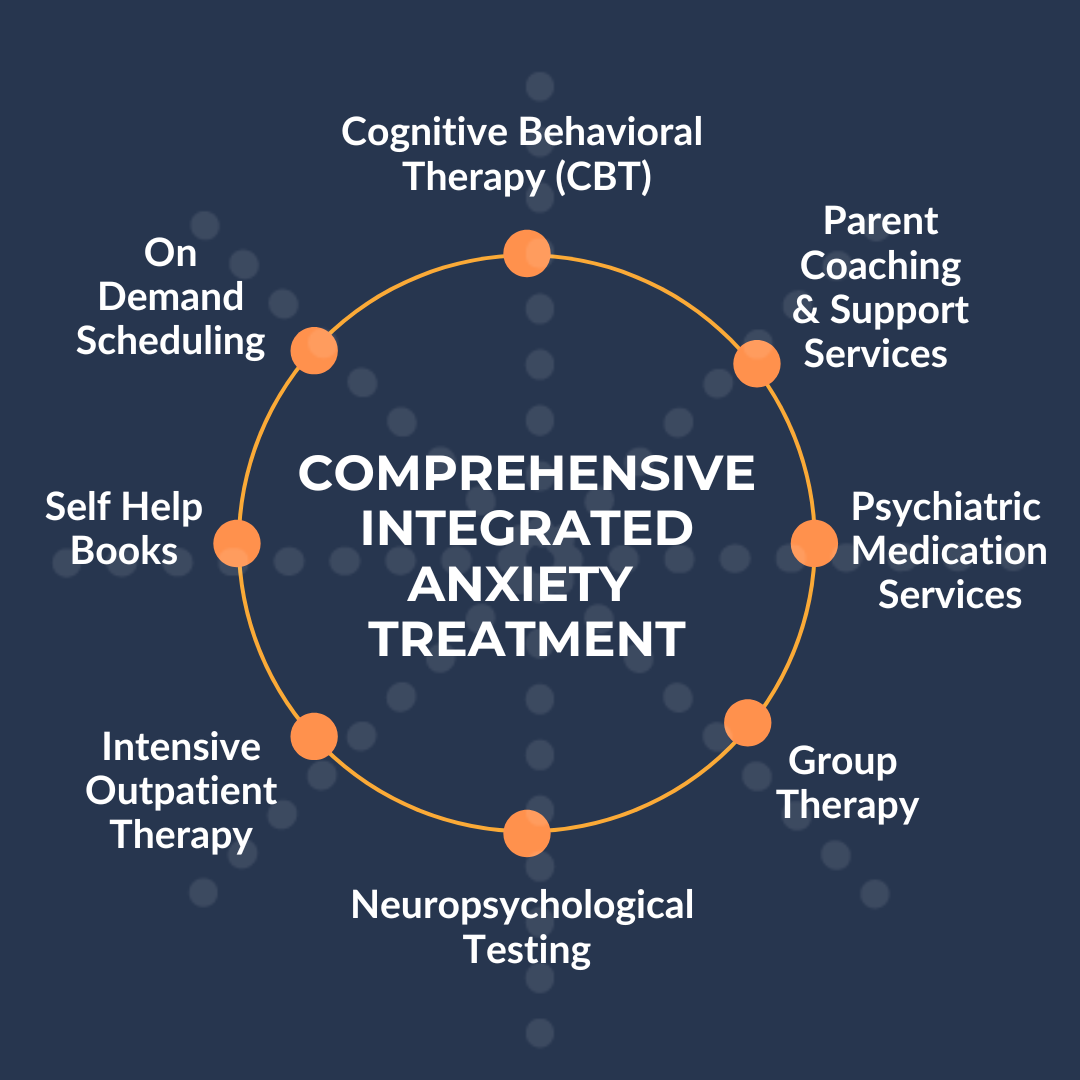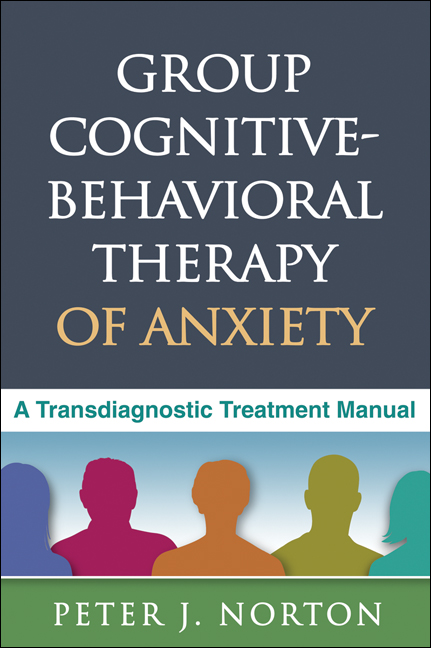Effective Approaches in Therapy for Stress And Anxiety Disorder: A Course to Recuperation
When facing anxiety conditions, you might feel overwhelmed and uncertain of where to transform. Reliable therapy techniques can lead the way for recuperation, giving you with the devices to navigate your difficulties. From cognitive-behavioral methods to mindfulness methods, each method offers one-of-a-kind advantages. Recognizing exactly how these methods collaborate can make a substantial difference in your journey. So, what are the essential components that will direct you in the direction of lasting change?

Understanding Stress And Anxiety Disorders: An Extensive Review
It's vital to acknowledge that they include a range of conditions characterized by too much worry or worry when you assume concerning stress and anxiety problems. These conditions can show up in various methods, including generalised stress and anxiety problem, panic condition, and social anxiousness disorder. You might experience signs and symptoms like rapid heartbeat, sweating, or problem concentrating. It prevails to really feel overwhelmed, and these feelings can disrupt day-to-day life.Understanding the root triggers of anxiousness is vital. They can originate from genes, brain chemistry, or ecological factors. You might find that certain situations activate your stress and anxiety, making it important to identify these triggers.
Cognitive Behavioral Treatment (CBT): Reshaping Idea Patterns
Cognitive Behavior Therapy (CBT) uses effective devices for reshaping the idea patterns that add to anxiety problems. With CBT, you'll learn to recognize and challenge unfavorable ideas that sustain your anxiety. Instead of allowing concern dictate your activities, you'll deal with reframing those ideas into more favorable, practical ones. This process helps you break the cycle of anxiety by altering just how you regard situations.You'll additionally create coping strategies to take care of stress and anxiety in real-time. By exercising direct exposure strategies, you'll progressively encounter your worries in a regulated manner, minimizing their power over you. Furthermore, you'll gain abilities to problem-solve and browse difficult situations much more effectively.CBT is structured and ambitious, which indicates you'll see progress as you apply what you discover in therapy to your day-to-day live. With commitment and method, you can markedly reduce your stress and anxiety and improve your total wellness.
Mindfulness and Leisure Techniques: Cultivating Present-Moment Understanding
Mindfulness and relaxation methods aid you grow present-moment awareness, enabling you to handle anxiety better. By concentrating on the present moment, you can damage without the cycle of worry and rumination that commonly gas anxiety. Begin by exercising deep breathing workouts. Inhale slowly through your nose, hold for a minute, then exhale with your mouth. This simple method can relax your mind and body.Engage in mindfulness meditation by reserving a few minutes each day to observe your thoughts without judgment. Take note of your breath, feelings, and the noises around you. You might additionally discover value in modern muscle mass relaxation, where you strained and relax each muscular tissue group, advertising mental and physical ease.Incorporating these techniques right into your daily regimen can produce a better feeling of control, reduce anxiousness signs, and improve your total well-being. Remember, uniformity is vital to experiencing the benefits.
Exposure Therapy: Dealing With Fears Progressively
Exposure therapy aids you face your concerns slowly, allowing you to develop self-confidence gradually. By utilizing progressive direct exposure techniques, you can slowly challenge what makes you nervous while creating efficient coping systems. This process not just reduces your concern yet also empowers you to handle anxiousness extra effectively.
Gradual Direct Exposure Strategies
You can successfully lower anxiousness and restore control over your life when you confront your fears gradually. Progressive exposure techniques include encountering your worries tip by action, beginning with much less frightening circumstances (counselling for anxiety). You may begin by envisioning the feared situation, after that proceed to watching video clips or images connected to it. Ultimately, you can exercise challenging the worry in reality, but only when you feel all set. This approach permits you to build self-confidence as you relocate via each stage. Keep in mind to speed yourself; hurrying can raise anxiousness. Celebrate small triumphes along the means, as each step ahead equips you. By check this site out regularly using these methods, you'll discover that your concerns start to lose their grip on your mind
Structure Coping Systems
Building reliable coping devices is important for handling stress and anxiety, especially as you face your concerns slowly via exposure therapy. Start by identifying your specific fears and damaging them down right into manageable steps. By doing this, you can slowly confront each fear without coming to be overloaded. For example, if you deal with social scenarios, begin by practicing tiny communications, like welcoming a neighbor.Alongside gradual exposure, integrate relaxation techniques such as deep breathing or mindfulness to relax your mind before encountering triggers. Maintain a journal to track your progress and celebrate tiny triumphes. Surround yourself with helpful friends or a therapist who can assist you. Bear in mind, it's a journey-- persistence and determination will enhance your coping systems, leading to greater resilience versus anxiety.
Encouraging Therapy: Building Count On and Connection
To efficiently support someone with stress and anxiety, establishing trust and rapport is essential from the very first session. You'll wish to develop a safe space where they feel comfy revealing their thoughts and sensations without judgment. Energetic listening is essential; program authentic passion in what they share. Acknowledge their sensations and verify their experiences. It is very important to be compassionate, as this helps develop a link and motivates openness.Be regular in your method and maintain confidentiality to more strengthen that depend on. Usage open body language and make eye call to convey your attentiveness. Bear in mind, your patience goes a lengthy means; building connection requires time, and it's important to appreciate their rate. By fostering this helpful setting, you'll empower them to engage even more totally in the therapeutic process, making it much easier for them to discover their anxiety and work towards recuperation.
Team Therapy: Shared Experiences and Collective Healing
Team therapy can be a powerful device for those managing anxiousness problems, as it permits people to share their experiences and locate relief in the understanding of others. In this encouraging setting, you can share your sensations without concern of judgment. Listening to others' stories can normalize your own experiences, making you feel much less alone in your struggle.Participating in team treatment assists you establish coping techniques through shared knowledge and understandings. As you pay attention to others, you might find new ways to tackle your anxiety that you had not taken into consideration before.Moreover, the cumulative healing that occurs in these sessions can cultivate a feeling of neighborhood, reminding you that you're not encountering your obstacles alone.Building links with others who understand your battle can enhance your confidence and motivation to face your anxiety. Team therapy develops an area where development and healing come to be a shared trip, equipping you to take actions towards recovery.
Integrating Way Of Life Changes: All Natural Techniques to Stress And Anxiety Management
While therapy provides important assistance, integrating lifestyle modifications can significantly enhance your capacity to manage anxiousness. Begin by including routine physical activity right into your routine. Workout releases endorphins, which can raise your mood and minimize stress. Next off, pay attention to your diet plan. Consuming a well balanced diet rich in fruits, veggies, and whole grains can favorably influence your mental health. Don't ignore sleep-- go for 7-9 hours per night, as high quality remainder is important for psychological regulation.Mindfulness practices, such as meditation or yoga exercise, can also assist you remain based and present. Take into consideration setting aside time daily to exercise these techniques. Lastly, restriction caffeine and alcohol usage, as they can aggravate anxiety signs. By making these alternative adjustments, you develop a stronger foundation for handling stress and anxiety, enhancing the advantages gained from therapy. counselling for anxiety. Remember, every little step trust your course to recuperation

Frequently Asked Inquiries
What Are the Typical Physical Symptoms of Stress And Anxiety Disorders?
Usual physical signs of anxiousness conditions include fast heart rate, lack of breath, muscle stress, you can check here sweating, and headaches. from this source You may also experience tiredness, dizziness, or stomach issues, which can better complicate your day-to-day live.
The Length Of Time Does Therapy for Anxiety Normally Take?
Counseling for stress and anxiety typically takes a few weeks to numerous months, depending on your private demands and development (counselling for anxiety). You'll locate that regular sessions assist you create dealing techniques and obtain insights into your stress and anxiety

Can Stress And Anxiety Problems Be Completely Cured?
While stress and anxiety problems can not always be completely treated, you can handle your signs and symptoms effectively. With the best methods and assistance, you'll locate means to reduce anxiety, enhance your wellness, and lead a satisfying life.
What Should I Carry out in an Anxiety attack?
Throughout a panic attack, concentrate on your breathing. Inhale deeply through your nose, hold for a moment, then exhale slowly. Ground yourself by naming objects around you, and remind yourself it will pass.
Exist Medications for Anxiousness Disorders?
Yes, there are several drugs for anxiousness problems, consisting of benzodiazepines and antidepressants. You need to consult a healthcare specialist to locate the best treatment strategy tailored to your specific demands and situations for the best outcomes. When you think concerning anxiety problems, it's important to recognize that they include a range of problems characterized by extreme fear or concern. These problems can materialize in different ways, consisting of generalised anxiety disorder, panic problem, and social stress and anxiety problem. Structure effective coping systems is vital for taking care of anxiousness, especially as you encounter your worries progressively with direct exposure treatment. Team therapy can be a powerful tool for those dealing with stress and anxiety disorders, as it allows people to share their experiences and find solace in the understanding of others. As you listen to others, you might find new means to tackle your stress and anxiety that you hadn't taken into consideration before.Moreover, the collective recovery that happens in these sessions can cultivate a sense of area, reminding you that you're not encountering your difficulties alone.Building links with others who recognize your struggle can enhance your confidence and inspiration to confront your stress and anxiety.